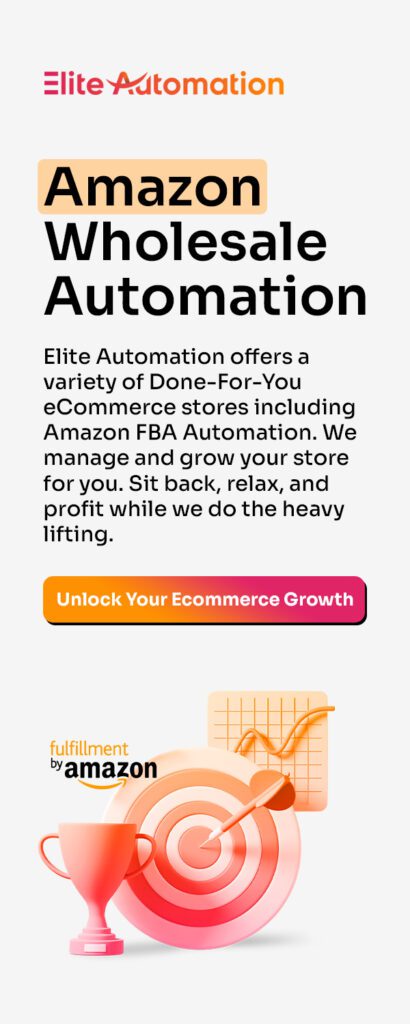When it comes to ecommerce platforms, many online entrepreneurs find themselves grappling between Shopify and WordPress. These platforms both offer excellent tools for building and managing an online business, yet they differ significantly in terms of structure, pricing, and functionality. Understanding these nuances is essential for online sellers striving to make an informed decision.
Shopify is often lauded for its ease of use and its ‘out-of-the-box’ ecommerce functionality. It’s ideal for beginners or sellers who prefer a hands-off approach to the technical aspects of their online store. Its inbuilt features align seamlessly with the processes of Amazon FBA, saving you time and reducing the complexity often associated with ecommerce management.
On the other hand, WordPress offers a level of flexibility unmatched by Shopify. This open-source software allows for significant customization, empowering entrepreneurs to create a uniquely tailored online presence. While this may necessitate a greater technical acumen or the hire of a developer, the trade-off is an ecommerce store that stands out in a crowded market.
In terms of pricing, Shopify structures its costs through a tiered subscription model. This includes hosting fees, which means there are fewer potential surprise costs down the line. This kind of transparent, predictable pricing is particularly appealing to sellers using Amazon FBA, who already face a myriad of other costs in storing and fulfilling products.
Conversely, the cost of a WordPress site can be harder to predict. The software itself is free, but additional expenses such as hosting, themes, plugins, and a potential developer’s fee can quickly add up. It’s crucial for online sellers to carefully consider these costs and their impact on the overall profitability of the business.
Shopify excels in providing robust, built-in SEO capabilities. This is a significant factor for online sellers, particularly those using Amazon FBA, as optimizing for search can dramatically enhance visibility and consequently, sales. Coupled with a user-friendly interface, these features can make it easier for you to reach your target audience without extensive SEO knowledge.

WordPress aligns well with those who have a strong handle on SEO best practices or those willing to learn. While it doesn’t necessarily provide the same initial SEO boost as Shopify, it does offer a wide range of plugins that can significantly enhance your store’s ability to rank on search engines.
When we examine payment options, we find both platforms have a broad range of options; however, Shopify’s own gateway, Shopify Payments, can be an advantage. It simplifies the process, reducing payment-related hassles. For busy Amazon FBA sellers, this could mean more time to focus on other aspects of their business.
However, if you are looking for extreme flexibility in payment options or have specific payment preferences, WordPress could be the better option. It has a plethora of plugins allowing you to integrate almost any payment gateway you prefer into your ecommerce store.
From a security and support perspective, Shopify takes the lead. Offering 24/7 customer support and stringent security measures – a major bonus for Amazon FBA sellers who handle large volumes of customer data. WordPress, while being a safe and secure platform, relies more on individual measures and support is not as readily available.
While Shopify offers an array of beautiful, mobile-friendly themes, WordPress really shines when it comes to design flexibility. If setting your brand apart through unique design is your priority, WordPress’s nearly limitless customization options may be the better choice.
Shopify’s strong integrations with Amazon FBA make it a compelling choice for sellers looking to streamline their operations. The platform seamlessly connects to Amazon, enabling sellers to manage their inventory and fulfill orders without leaving Shopify.
Yet, WordPress’s flexibility again comes into play with integrations. The platform’s extensive plugin library includes solutions for connecting your store to Amazon FBA, alongside a wealth of other third-party tools to enhance your store’s functionality.

In conclusion, the decision between Shopify and WordPress hinges on your specific needs as an ecommerce entrepreneur. Shopify offers simplicity, out-of-the-box features, robust security, and seamless Amazon FBA integration. WordPress, on the other hand, rewards those seeking customization, flexibility, and control over every detail of their online store.
Both platforms have their strengths and appeal to different types of sellers. It’s crucial to weigh the differences intricately before choosing your ecommerce platform. And remember, the success of your online store will depend on more factors than just your platform choice; your strategy, product selection, marketing, and customer service will also come into play. All this being said, our personal favorite is Shopify due to the countless apps and integrations which allow for ease for sellers of all experience levels. We even offer a Shopify Automation service where we build profitable Shopify stores for clients on their behalf from scratch.


